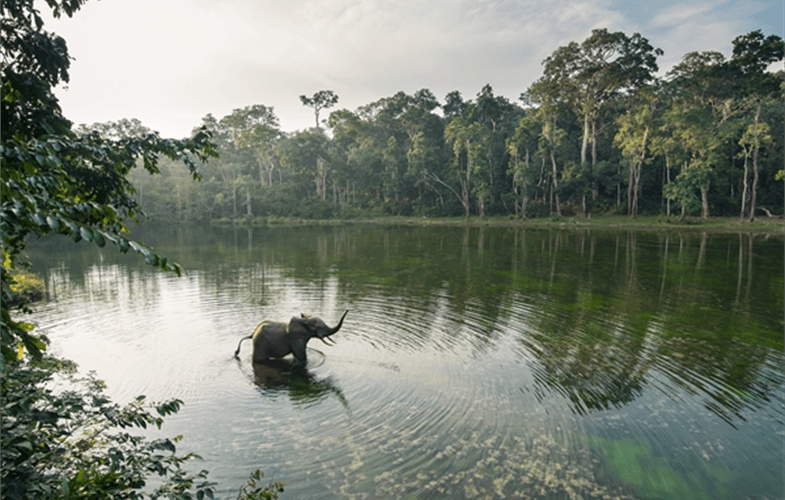Apr 12 2019
An international research reported in the journal Science on April 11th, 2019 claims that the existing international target for the protected area estate, approved by more than 190 countries, is failing.
 Forest elephant, Nouabale-Ndoki National Park, Congo. (Image credit: Kyle de Nobrega)
Forest elephant, Nouabale-Ndoki National Park, Congo. (Image credit: Kyle de Nobrega)
They put forward a new measurable target on the basis of the best scientific evidence that they claim will stimulate greater and more effective conservation efforts.
The research pinpoints four main issues with the United Nation’s Aichi Target 11—which demands the protection of at least 17% of terrestrial and inland water regions and 10% of coastal and marine regions. The researchers state the target has resulted in opposing results and has not promoted effective conservation efforts. The use of simple percentage targets for protected regions implies that there is an inducement to develop large protected regions of little conservation value.
Other issues with Aichi Target 11 design and execution include the lack of incentives in the target and resources devoted to sufficiently manage or fund protected regions, insufficient representation of natural communities and species within protected area borders, and the inability to describe national responsibilities toward the global target in a significant way.
While there has been a significant increase in the overall extent of the global protected area estate over the past 10 years, many of the new protected areas are being placed in sites that are not as important for biodiversity. Other, more important sites are left unprotected and are vanishing before our eyes. There is also clear evidence that the vast majority of protected areas are not being funded and managed in ways that stop damaging human activities.
Dr Piero Visconti, Study Lead Author, International Institute for Applied Synthesis Analysis
The research team claims that outcome-based targets for protected regions are required to fulfill biodiversity objectives. They recommend the following new target: “The value of all sites of global significance for biodiversity including key biodiversity areas is documented, retained and restored through protected areas and other effective area-based conservation measures.”
The projected target emphasizes measuring and realizing the end-goal of conservation: achieving and maintaining long-term positive biodiversity status and trends. This is an important step forward from all prior protected area commitments, which determined progress on the basis of the amount of region protected, not the biodiversity outcomes resulting from it.
Despite the need for a new protected area target, a co-author of the study, Dr James Watson of University of Queensland and the Wildlife Conservation Society (WCS), highlighted the key significance of current protected areas for protecting endangered biodiversity.
We know protected areas work—when well-funded, well-managed and well placed, they are extremely effective in halting the threats that cause biodiversity loss and ensure species return from the brink of extinction. There are also many protected areas that are still in good condition and are now the last strongholds for endangered species worldwide. The challenge is to improve the management of those protected areas that are most valuable for nature conservation to ensure they safeguard it. We need all nations to be honest when accounting for how much land and water they have set aside for biodiversity conservation. As we approach the 2020 deadline for the Convention for Biological Diversity’s current targets, it is time for the global conservation community to stand up and hold governments to account so that they take the conservation of their protected areas seriously. This means setting a target that will achieve the outcome that is best for biodiversity.
Dr James Watson, Study Co-Author, University of Queensland